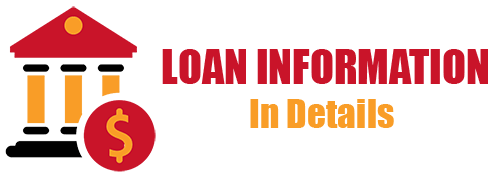Loans play a crucial role in achieving significant life goals that might be financially out of reach, such as pursuing higher education or buying a home. There are various types of loans available, each serving different purposes, including consolidating existing debts. Understanding the loan types and their features is essential before deciding which one is best suited for your needs. Here’s a breakdown of the most common types of loans and how they function:
- Secured Loan:
- Requires collateral, typically an asset you own.
- If you fail to repay the loan, the lender can take possession of the collateral.
- Examples include home equity loans and some auto loans.
- Unsecured Loan:
- Does not require collateral.
- Because of the higher risk to lenders, unsecured loans often have higher interest rates.
- Personal loans and credit-builder loans are common examples of unsecured loans.
- Installment Loan or Term Loan:
- Repaid with fixed payments over a set period, which can range from months to years.
- Personal loans and auto loans are typical installment loans.
- Revolving Credit:
- Allows borrowing up to a predetermined credit limit.
- At the end of each billing cycle, you can choose to pay off the full amount borrowed or carry over a balance to the next month by making a minimum payment.
- Credit cards are the most common form of revolving credit.
- Fixed-Rate Loan:
- Has a constant interest rate throughout the loan term.
- Mortgage loans often come with fixed interest rates.
- Variable Rate Loan:
- The interest rate may change based on a baseline rate, like the prime rate.
- If the baseline rate increases, the loan interest rate may also rise.
- Some student loans and adjustable-rate mortgages (ARMs) are examples of variable rate loans.
Now, let’s explore the eight most common types of loans in detail:
- Personal Loans:
- Versatile loans that can be used for various purposes, such as emergency expenses, weddings, or home improvement projects.
- Usually unsecured, meaning no collateral is required.
- Repayment terms can span from a few months to several years, with fixed or variable interest rates.
- Auto Loans:
- Specifically designed for purchasing vehicles.
- The car itself serves as collateral, and the lender can repossess it if payments are not made.
- Loan terms typically range from 36 to 72 months, with longer terms becoming more common due to increasing auto prices.
- Student Loans:
- Help finance college and graduate education.
- Federal student loans offer benefits like deferment, forbearance, and income-based repayment plans.
- Private student loans come with varying terms, rates, and fees and may require a credit check.
- Mortgage Loans:
- Used to purchase homes.
- The property acts as collateral, and the lender can foreclose if payments are not made.
- Repayment periods can be 10, 15, 20, or 30 years, with fixed or adjustable interest rates.
- Home Equity Loans:
- Allows borrowing against the equity in your home.
- Available as either installment loans or revolving lines of credit (HELOCs).
- HELOCs typically have variable interest rates, while home equity loans come with fixed rates.
- Credit-Builder Loans:
- Designed to help those with poor or no credit improve their credit score.
- The loan amount is placed in a savings account, and borrowers make fixed monthly payments.
- Once repaid, borrowers get the money back with interest.
- Debt Consolidation Loans:
- Personal loans aimed at paying off high-interest debts like credit cards.
- Simplify repayment by consolidating debts into a single loan with potentially lower interest rates.
- Payday Loans:
- Short-term loans with high fees, often equivalent to APRs of 400% or more.
- Due in full by the borrower’s next payday.
- Considered risky due to the cycle of debt they can trap borrowers in.
Interest rates for loans can vary depending on factors like the lender, creditworthiness of the borrower, loan term, and whether the loan is secured or unsecured. Generally, mortgages tend to have the lowest interest rates due to their secured nature and long repayment periods. To improve your chances of getting favorable interest rates, maintain a good credit score and check your credit report regularly.
In summary, understanding the different types of loans and their features is crucial before borrowing money to ensure you choose the one that best fits your needs and financial situation.


